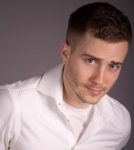 Risky Business: Examining the Role of Risk in HIV Prevention Research and Everyday Life
Risky Business: Examining the Role of Risk in HIV Prevention Research and Everyday Life
Wednesday, April 15 2:00-3:00pm EST
CLICK HERE to register and watch Mark’s welcome video.
The concept of risk plays a fundamental role in the HIV/AIDS epidemic, shaping our research questions, education strategies, governance and activism. Ultimately, ideas about risk come to determine how individuals and communities experience and manage HIV in everyday life.
But what exactly do we mean by risk? Why is this concept so avidly applied in the field? What are some of the benefits and shortcomings of this term? And most importantly, given the current context of available prevention strategies, what does it mean to be at risk today?
For this online presentation Mark Gaspar will be presenting some highlights from his PhD project, which explores the experiences of young HIV negative gay men who have thought themselves to be at risk for HIV. Emphasis will be placed on the relationship between knowledge production and experiences of being at risk.
Learning Objectives
- Understand some key critiques of risk as a concept and explore the notion of being at risk
- Understand the relationship between knowledge production on risk and experiences of being at risk
- Understand how moments of being at risk shape learning and future prevention outcomes
Preparation
- Participants are asked to come prepared with at least one example of how the concept of risk plays a role within their work (research, services, advocacy, all the above, etc.).
- Participants with specific questions about risk (for example, what is the relationship between risk and stigma? Can we or should we forgo the concept of risk?) are asked to email the presenter in advance of the presentation ([email protected]).
Mark Gaspar is a PhD candidate in the Centre for Interdisciplinary Studies in Society and Culture at Concordia University, with a focus in sociology. Mark’s work analyzes gay male HIV prevention with methodological tools from risk studies, health and illness studies and sexuality studies.

